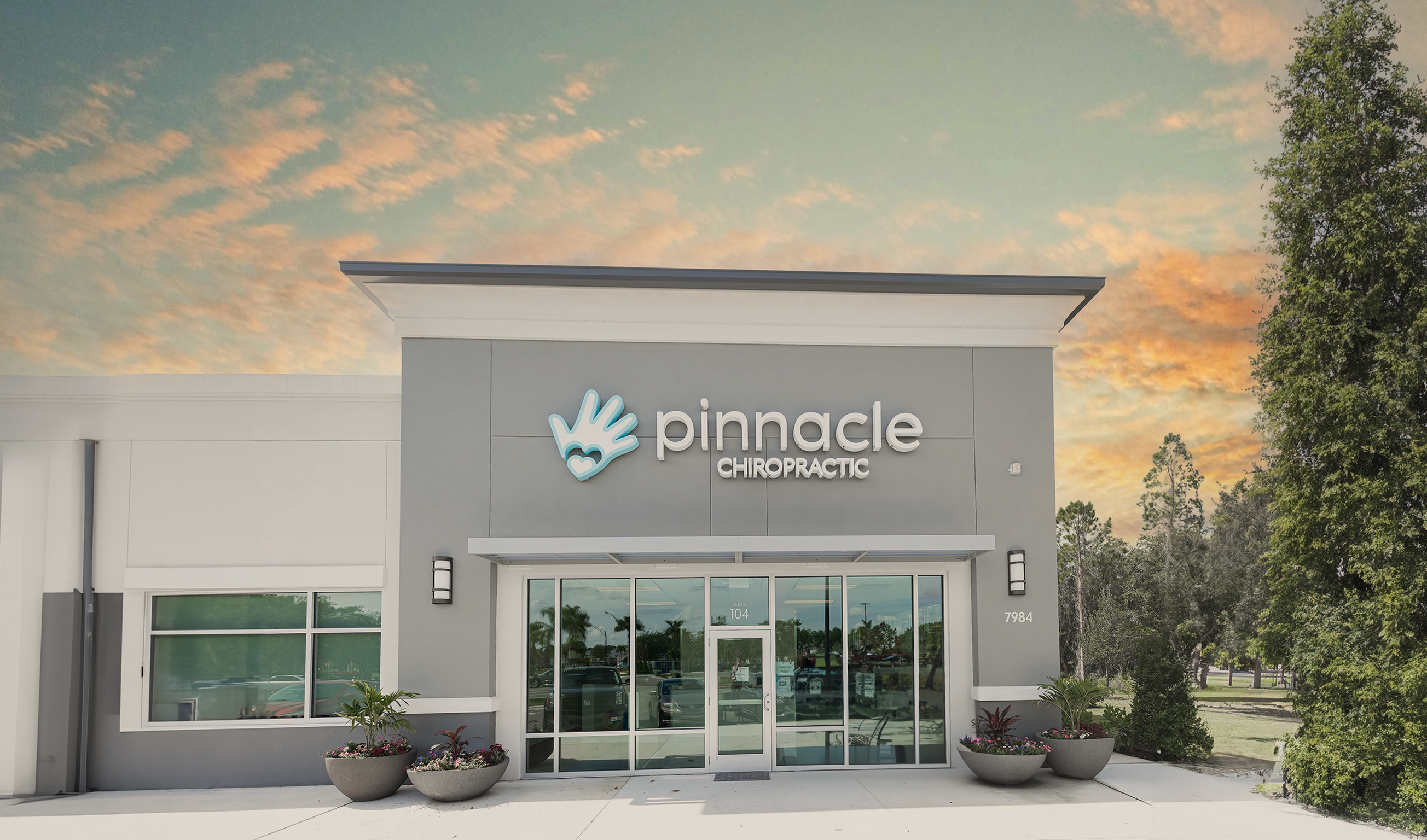Parenting a child with complex medical needs often feels like navigating uncharted waters. You may be watching your child struggle with a range of challenging symptoms – from seizures and sleep disturbances to anxiety, depression, and digestive issues. Perhaps you're also dealing with autoimmune conditions like PANS or PANDAS, searching for answers and understanding.
Take heart – you're walking a path that many parents have traveled before, even though it may feel solitary at times. While medical professionals may have discussed various aspects of your child's health, there's one condition that could be connecting these seemingly unrelated symptoms: dysautonomia.
This condition, which affects the autonomic nervous system, might be the crucial piece that helps complete your understanding of your child's health challenges. Whether you're just beginning to explore this possibility or have been searching for answers for years, know that there is hope and a growing community of families and healthcare providers dedicated to understanding and treating this complex condition.
Let's work together to unravel this puzzle and find the best path forward for your child's health and well-being. Today, we want to shed light on a condition that might be the missing piece of your child's health puzzle: dysautonomia.
The Hidden Epidemic
We're facing an absolute epidemic of chronic health problems among our teenage and young adult population. The rates of anxiety and depression have skyrocketed, and the sheer number of teens struggling with poor gut health, autoimmune conditions, and even seizures is staggering. As a parent, watching your child struggle with these issues can be overwhelming and leave you feeling helpless.
Traditional medicine often falls short, offering little more than a cocktail of medications to mask symptoms. Many of the teens and young adults we meet are on 3, 4, 5, or even 6 different medications, dealing with side effects that make them feel even worse. The truth is, these medications don't address the root cause of their health issues.
Connecting the Dots: Dysautonomia
What if we told you that there's a common thread tying these seemingly unrelated conditions together? It's called dysautonomia - a dysfunction and imbalance in the autonomic nervous system. Understanding dysautonomia could be the key to unlocking your child's path to better health and improved quality of life.
What is Dysautonomia?
The autonomic nervous system (ANS) controls all of our body's automatic functions, like heart rate, blood pressure, digestion, and temperature regulation. It's made up of two main branches:
- The sympathetic nervous system (our "fight or flight" response)
- The parasympathetic nervous system (our "rest and digest" mode)
These two systems were created to work together seamlessly to maintain balance. However, in dysautonomia, this delicate balance is disrupted, leading to a wide range of symptoms that can affect nearly every body system.
The Two Main Problems of Dysautonomia
- Sympathetic Overdrive: The "fight or flight" system gets stuck in the "on" position.
- Parasympathetic Suppression: The "rest, relax, and regulate" side of the nervous system gets suppressed and shut down.
Because the ANS controls so many major physiological systems and functions in the body, problems start to show up all over, often in a specific sequence:
- Sleep: Difficulty falling asleep and staying asleep, leading to fatigue, exhaustion, and brain fog.
- Digestion: The gut and digestive system require a lot of energy and focus from the nervous system. When stuck in "fight or flight" mode, the body diverts energy away from digestion, leading to various gut issues.
- Immune function and inflammation: A chronic state of stress leaves the body in a constant state of inflammation and suppressed immune function.
- Brain health: When dysautonomia is in full effect, mental, emotional, behavioral, and cognitive capacities are significantly affected.
The "Perfect Storm": Understanding the Origins of Dysautonomia
Dysautonomia doesn't develop overnight. It's often the result of a "Perfect Storm" of factors that can include:
- Prenatal stress
- Birth trauma or interventions
- Early childhood stressors
- Environmental toxins
- Poor nutrition
- Chronic infections
Recognizing these factors can help us understand why your child might be experiencing these challenges and guide us in creating a comprehensive healing approach.
Taking Charge of Your Child's Health
As a parent, you have more power than you might realize to help your child overcome these challenges. Here are some steps you can take:
- Recognize the Signs: Be aware of the symptoms of dysautonomia and how they might manifest in your child. Look for patterns in sleep disturbances, digestive issues, anxiety, and other seemingly unrelated symptoms.
- Seek Proper Care: Traditional medical tests often miss dysautonomia. There is no valid medical testing for dysautonomia, just as there's no test for the supposed "chemical imbalance" theory behind conditions like ADHD, anxiety, and depression. This is why conventional medicine often misses it 99% of the time. Look for healthcare providers who use Neurological INSiGHT Scans, specifically Heart Rate Variability (HRV) testing. These scans can detect patterns and evidence of dysautonomia and nervous system dysregulation.
- Explore Holistic Approaches: Consider Neurologically-Focused Chiropractic Care, which addresses the root cause of dysautonomia and helps balance the nervous system. This approach has shown remarkable results in helping teens and young adults regain their health and vitality.
- Support Your Child's Nervous System: Implement stress-reduction techniques, ensure proper nutrition, and create a sleep-friendly environment. Remember, every positive step helps in rebalancing the autonomic nervous system.
- Be Patient and Persistent: Healing takes time. Celebrate small victories and keep moving forward. Your child's nervous system has likely been out of balance for some time, so be patient as it learns to function optimally again.
- Educate Yourself: The more you understand about dysautonomia and the autonomic nervous system, the better equipped you'll be to support your child's healing journey.
Hope for the Future
Living with dysautonomia and chronic health conditions doesn't have to be your child's permanent reality. Every day, families are discovering new hope through Neurologically-Focused Chiropractic Care, offering drug-free solutions that address the root cause of these challenging conditions.
Our Comprehensive Approach
Your journey to understanding and healing begins with three key steps:
1. In-Depth Consultation
We begin with a thorough consultation and case history that goes beyond surface-level symptoms. Our detailed approach helps uncover the underlying factors affecting your child's health – often revealing connections that previous assessments may have missed.
2. Advanced Testing
Our state-of-the-art INSiGHT Scan technology provides crucial information about:
- Nervous system function
- Dysautonomia indicators
- System dysregulation patterns
This quick but comprehensive 15-20 minute assessment provides valuable insights into your child's condition.
3. Personalized Care Planning
During our Report of Findings visit, we:
- Review your child's scan results in detail
- Explain our findings in clear, understandable terms
- Present a customized care plan tailored to your child's specific needs
Taking Action
Your child's path to better health begins with a single step. If you're ready to explore a natural approach to managing dysautonomia and related conditions:
- Contact us to schedule your consultation
- For families outside our area, visit the PX Docs directory to find a qualified practitioner near you
Your Role as an Advocate
As your child's strongest advocate, you have the power to make informed decisions about their healthcare journey. Understanding dysautonomia and exploring comprehensive treatment options can open new doors to your child's wellness and vitality.
Remember: True healing addresses the root cause, not just the symptoms. Together, we can help your child move from simply managing symptoms to embracing a fuller, more active life.









